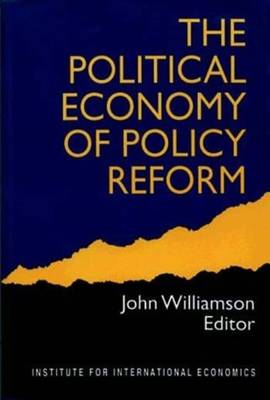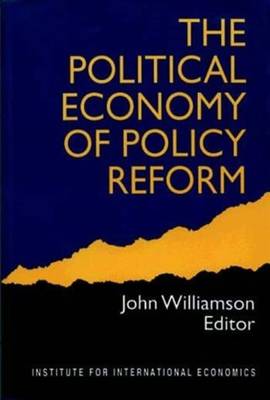
- Afhalen na 1 uur in een winkel met voorraad
- Gratis thuislevering in België vanaf € 30
- Ruim aanbod met 7 miljoen producten
- Afhalen na 1 uur in een winkel met voorraad
- Gratis thuislevering in België vanaf € 30
- Ruim aanbod met 7 miljoen producten
Zoeken
Omschrijving
A large measure of consensus exists about the substantive content of successful economic policy reform--macroeconomic discipline, microeconomic liberalization, and participation in the global economy--that is needed for an economy to enter the modern world. There is much less consensus on the political conditions necessary to sustain meaningful economic reform. Editor John Williamson commissioned 13 case studies for countries as diverse as Australia, Chile, and Poland from "technopols" who played leading roles in implementing the policy reforms. Each author focuses on the political and institutional factors that shaped policy choices and outcomes. This volume contains the case studies and a synthesis of findings and other policy implications by Williamson and University of California at San Diego political scientist Stephan Haggard. Other distinguished experts, including Inter-American Development Bank President Enrique Iglesias and Harvard economist Jeffrey Sachs, contribute independent appraisals of the political economy of reform in Latin America, Eastern Europe, and the former Soviet Union.
Specificaties
Betrokkenen
- Auteur(s):
- Uitgeverij:
Inhoud
- Aantal bladzijden:
- 624
- Taal:
- Engels
Eigenschappen
- Productcode (EAN):
- 9780881321951
- Verschijningsdatum:
- 1/01/1994
- Uitvoering:
- Paperback
- Formaat:
- Trade paperback (VS)
- Afmetingen:
- 153 mm x 229 mm
- Gewicht:
- 825 g

Alleen bij Standaard Boekhandel
+ 135 punten op je klantenkaart van Standaard Boekhandel
Beoordelingen
We publiceren alleen reviews die voldoen aan de voorwaarden voor reviews. Bekijk onze voorwaarden voor reviews.







